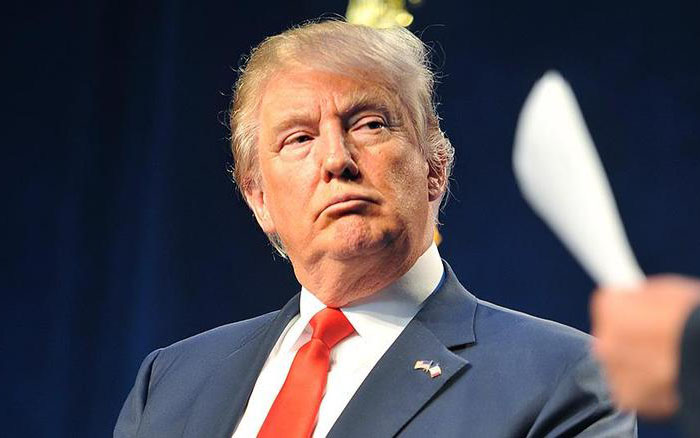Dilemma of illegal unilateral coercive measures on adversaries


Donald Trump
Hamdan Wadi Dldoom Special Correspondent
Coercive diplomacy is one of the most controversial and intriguing common practices aftermath of the World War II and even during the Cold War era, however, it seems it has been used excessively and bluntly by some forces that practice unilateralism nowadays.
American scholar Matthew Waxman defines coercive diplomacy as “getting the adversary to act a certain way via anything short of brute force”, but the practices have shown that the illegal Unilateral Coercive Measures (UCM) might cause the same casualties that the brute force would inflict.
The economic, commercial and financial restrictions imposed by UCM are far fatal than the weapons used in case of resorting to brute force.
The reports of the International Non-Governmental Organisations (INGOs) and UN Special Rapporteur on the negative impact of the UCM on the enjoyment of human rights as well as the domestic reports of the affected entities have unequivocally revealed the devastating effects of these illegal policy instruments.
What would be the killer rather than the notorious UCM when the vulnerable perishes due to the lack of the lifesaving medicines and proper nutrition.
Sudan is not isolated in its quest, yet at many regional and international fora, have requested the administration to end this dilemma.
It has made this call at the African Union, Organisation for the Cooperation of Islamic countries and the Arab League as well.
It is high time to the adversaries to have recourse to constructive engagement and abandon the medieval practices. What we have labelled as the global village could accommodate the humankind if we accepted the reality that we are not homogeneous.
Since we live on one planet, we should tolerate the difference of cultures, equitable distribution of resources and abandon the desire to exploit the developing nations.
Most of the coerced individuals and entities have resorted to the principle of positive engagement, but those who have got the strength prefer to impose their own agenda, desiring complete capitulation, nevertheless peaceful coexistence is bound to the win-win game.
We have witnessed in several cases over the recent history, that the zero sum equation has failed to realise peace in the conflict zones.
The positive engagement Sudan has pursued revealed into conditional and partial lifting of sanctions the US has imposed for a period of time (more than two decades) on allegations of terrorism sponsorship.
The final lifting was supposed to be decided on July 12 2017, however, President Trump did not take that long overdue decision upon the pretence that the administration needs more in-depth investigations that the culprit has distanced itself from the alleged activities, but the obvious truth that any prudent observer would realise is that the two countries have had a joint dialogue committee, which reported eventually that Sudan has completely honoured its obligations and the two countries have begun joint cooperation in some aspects of relations between the two states and the entrepreneurs commenced their quest for the investment and trade opportunities.
It is surprising and disappointing at this critical stage of the relation between the two countries that while the duo is streamlining the cooperation, other allegations are raised against Sudan, which were not within agenda items of the Joint Dialogue Committee.
It was a blatant manifestation of building up new agenda items.
The terminology of human rights violations is so loose and slippery to be captured and the exercise of bilateral relations a guaranteed right of a sovereign entity if it complies with principles and norms of the established rules of the International Law.
The USA has determined a new deadline for the decisive revocation of sanctions on Sudan, that is October 12, 2017 and we do not seriously contemplate any counter-intuitive rather than the nullification of the notorious sanctions which deny the well-being of innocent civilians and vulnerables.
In conclusion, we call upon all the peace loving nations in the world and in particular our Africans to exert the necessary leverage on those entities who want to continue on this unacceptable trajectory.
Sudan has done its part, especially in the areas designated by the Joint Dialogue Committee admittedly and by the recognition of all who are involved in this issue, particularly the United Nations country teams, and it is imperative for the USA to lift these sanctions when the deadline expires.
Hamdan Wadi Dldoom is the Sudanese Ambassador to Zimbabwe










Comments